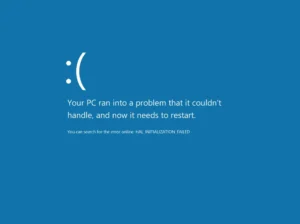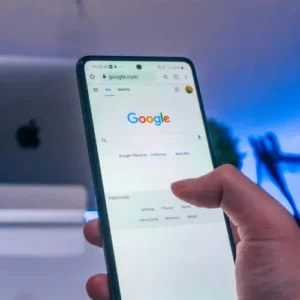As we begin a new decade, the move from outmoded technology to more modern, practical alternatives is already underway.
As the technology underlying internet infrastructure continues to progress and more VoIP providers enter the market (improving everyone’s game), businesses large and small are realizing that VoIP is the future. They’ve also realized that the future is now.
Upgrading a company’s phone communication services to VoIP has various advantages. We’ll go over the top 10.
Cost-cutting
Saving money is undoubtedly the most convincing reason to convert to VoIP. Small businesses can take advantage of the following opportunities:
There is less equipment required, fewer set-up costs, less monthly service fees, fewer customization charges, and cheaper long-distance prices.
When moving to VoIP, the average small business should expect to save 30% to 50% (or more), while exact cost reductions vary.
Also read: VoIP Wholesale VoIP Termination
Enhanced Client Experience
It’s critical to have a professional phone presence. This includes having an automated attendant, playing hold music, and having clear phone directories. Traditional PBX (private branch exchange) systems must be set and adjusted to deliver this level of service, and making changes to them can be time-consuming.
Thanks to VoIP, mom and pop shops are no longer limited to employing an amateurish phone greeting. Instead, they may compete head-to-head with the main companies by giving their customers services that were previously only available to larger corporations.
A professional phone greeting is only the beginning of providing excellent customer service. Call analytics, automated call distribution, and missed call SMS are further VoIP features that improve the customer experience.
If you’ve never studied call analytics and used statistics, these insights might change your firm. At a glance, you’ll be able to observe what’s going on in your front office. You may monitor a wide range of statistics, including:
Total number of calls received; total number of calls placed; total number of calls missed and returned; phone number phoned (call tracking); call volume; and time of day you get the most calls.
Contact the source (some systems will indicate if the caller was a client or not).
Movement
Office borders are becoming increasingly blurry as more organisations employ remote teams. The share of workers who work from home at least occasionally is also continuously growing. While this mobility affords teams flexibility, it may make brand management challenging when team members connect with customers.
When you have a VoIP system, your employees may use their cellphones as if they were office phones. They may make and receive calls using your recognised phone number, separating work and personal interactions.
Customers and clients who are accustomed to engaging with businesses via SMS text messages may appreciate this arrangement.
Employees are empowered to be productive no matter where they are since they may make and receive business calls from any location with an Internet connection.
Reliability
Traditional phone systems tether you to your desk, increasing the probability of missed calls. Due to a five-minute loo break or a lunch hour without front desk assistance, missed opportunities can cost thousands of dollars.
VoIP solutions enable businesses to capitalize on more opportunities by reducing missed calls. VoIP systems allow you to pass or redirect phone calls to whoever is available rather than directing them to a single person. You can even build up decision criteria (automatic call distribution) to determine who will answer specific calls at what times.
In the event of a missed call, a new feature called “missed call texting” ensures that the caller hears from you straight soon after hanging up, even if no one is available to answer their call.
For example, after a missed call, a caller may receive a text message that reads, “Hello! Please accept my apologies for missing you! We briefly left the office, but we’ll be back at 2:00 p.m. Do you require quick assistance in the meantime?
Even calling someone may not be preferred, given that one-third of Americans prefer texting than calling! Furthermore, it encourages the caller to contact your company rather than continuing down the list.
Scalability
Growing pains are unavoidable when using a traditional phone system as you add more staff or relocate to a bigger location. Adding a phone line, setting up a new employee in your system, and possibly even re-recording some of your phone tree are typical requirements for new hires.
Businesses that have switched to VoIP value the ease with which they may quickly and affordably hire additional personnel. They only need to log in to their VoIP program and make a few simple settings. No need for IT support!
Hosted VoIP systems fall under this simplicity of use category. On-premises VoIP may still require some technical know-how to configure gear, but it won’t be as time-consuming or challenging as a conventional PBX system.
You also benefit from having phones that aren’t connected to a certain location if you use hosted VoIP. Your phone system doesn’t need to replace if you change workplaces.
Less Maintenance
Regular equipment and system upgrades are a hassle for small business owners, and traditional phone systems can make this process even more difficult. The fact that traditional phone systems are quickly becoming obsolete is one of the causes of this.
As a result, maintaining them can feel like a game of whack-a-mole. When you repair, modernize, or upgrade one thing, another squeaky wheel starts requesting grease. The difficulty in locating new equipment to support these systems and the scarcity of specialists who are able to repair and maintain it only adds to the difficulty.
In contrast, VoIP technology is easier to use and, while it does take some technical know-how, it doesn’t require extensive training or special certifications. It’s even simpler to maintain your system if you utilize a hosted VoIP solution because the VoIP provider takes care of everything.
21st century features
Actually, given everything that today’s VoIP solutions have to offer, traditional phone systems just cannot compete. VoIP systems come with a variety of capabilities, such as visual voicemail, call logs, video conferencing, voicemail to email connections, and more, in addition to sophisticated features like automatic call distribution that are now standard. VoIP is a requirement if you manage a modern office.
Removes the clunky fax machine
In your office, do you still use a fax machine? Does it occupy any useful space? Does it frequently jam, run out of paper at the worst possible time, or print poorly?
With digital faxing solutions, fax machines are becoming obsolete and are no longer required. Internet faxing is another service that many VoIP providers provide, either for free or for a nominal price.










